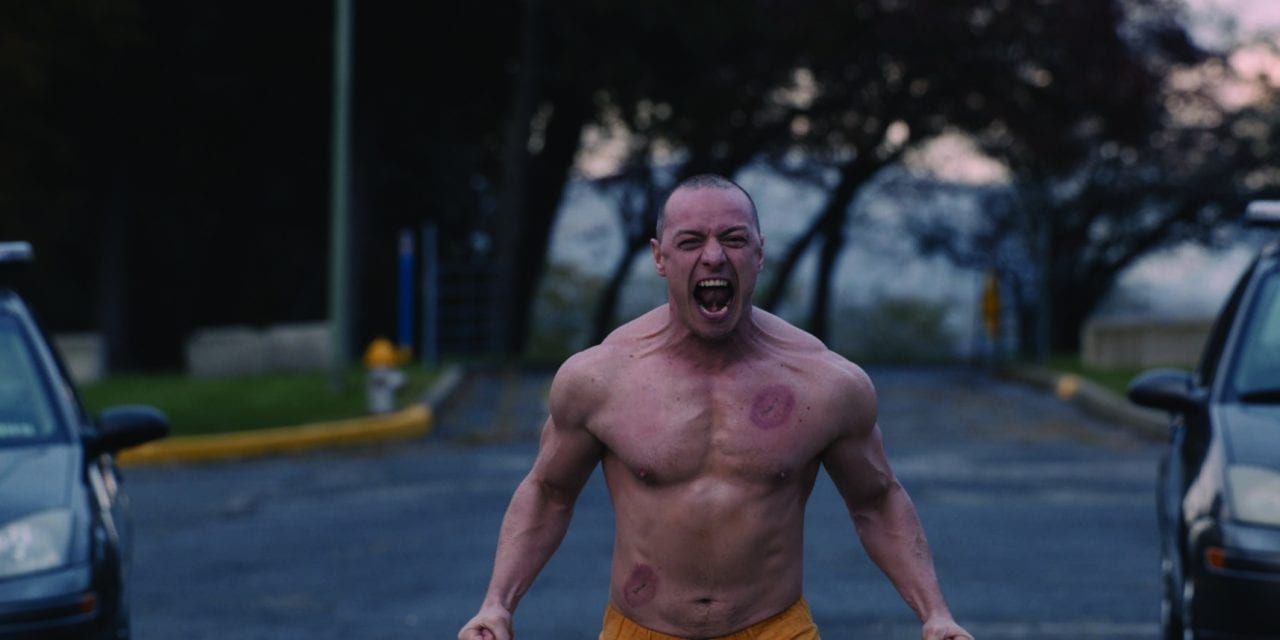Believe it or not, for a fleeting few years in the late ‘90s/early ‘00s, the most important brand name in cinema was M. Night Shyamalan. Starting with 1999’s The Sixth Sense, and going to 2000’s Unbreakable and 2002’s Signs, the box-office success and buzz surrounding his twist-ending movies was so exciting that he got the rare honorific of having his name as a possessive before the film’s title, something only Alfred Hitchcock and a few others have ever demanded. The thrill began to diminish with The Village, and spiraled quickly with the disastrous Lady in the Water, The Happening and The Last Airbender — big-budget flops that made him seem like a flash in the pan.
Then in 2015, he returned to smaller, more personal filmmaking with The Visit, a small but profitable thriller. The two years ago, he released Split, and suddenly Night became day again. A psychological horror about a man (James McAvoy) with a split personality — but also quirky physical abilities — saved its best twist for the end: It (and he) existed in the same world as the proto-superheroes of Shyamalan’s Unbreakable. It was a sequel you didn’t know was a sequel until the closing minute.
There’s no avoiding that Glass, out this weekend, is definitively part of the Unbreakable universe of differently-abled men: One (Bruce Willis) a reluctant hero who seemingly cannot be killed; another (Samuel L. Jackson) whose mind is brilliant but evil, and whose body is so brittle he is nicknamed Mr. Glass; and the third (McAvoy) a disturbed sociopath, whose id runs amok. The question is, now that we know how the pieces are supposed to fit together — once the twist arrives at the start, not the end — will we see Split be an outlier or the beginning of a return to form?
It’s probably fair to say a little of both. Shyamalan isn’t a clutch hitter; when expectations are low, his execution is pretty spot-on, but when pressure builds (the “How will he impress us next?” syndrome) he tends to choke. (His only $200 million-plus movies were followed by let-downs.) He sets up Glass as part of a trilogy, even a franchise,
The audience can be to blame as well. If you’re looking for evidence of “the twist,” you can become distracted from what’s actually going on in front of you. Then you rely on Shyamalan’s explanation to salve being burned by his legerdemain. I remember watching The Sixth Sense, for instance, and wondering how this poor kid could afford such an tony psychiatrist, or why the wife was so cold to her traumatized husband (he was the victim of a shooting, after all). It’s only when you realize the doc has been dead all the time (ummm…. spoiler alert) that those weaknesses explain themselves.
Glass has a few of those (which I won’t recount here, in order to maintain some mystery), and while they kinda-sorta make sense in the end, they gnaw at me as a viewer — how could they not gnaw at the characters in the film?
The structure doesn’t quite work (at more than two hours, it’s easily Shyamalan’s longest movie; he usually clocks in at around 100 minutes). Despite the conceit being that all three men are confined to a mental institution, there are large swathes where one or more of them are ignored, and their plotlines don’t integrate until late. The film’s McGuffin ends up being more of a red herring, and the ending ambiguous at best.
But there’s no denying the power of Jams McAvoy’s performance. As someone suffering from multiple personality disorder, he expresses 24 distinct characters, sometimes within seconds of each other, and each personality — women, children, the menacing serial killer known as The Beast — are vivid, interesting, specific. He is the most compelling thing in the movie, and reason enough to see it.
— Arnold Wayne Jones
Now playing in wide release.













